I always tell people that I have the pleasure of having a mother with a disability. She taught me so much in how to be independent with a disability. There was never any second-guessing on me taking a chance on exploring my boundaries to be independent.
My mom grew up in the 1950s with cerebral palsy; spastic triplegia, to be exact. Her mother coddled her and kept her safe as most mothers do, but these best intentions don't always work out. She also grew up with five other able-bodied siblings who helped her with her daily tasks. As her siblings got older and started going to school, she found herself home alone much of the time. She was left to figure out how to get things done on her own.
Little did she know all of this practice was preparing her to be an amazing mother and the example in my life of how to be the independent woman with disabilities I am today.
Ma, what was the hardest thing about being disabled and having a child with a disability?
Ma: During that time, they wanted to take you away from me because I am disabled. It was very new to the world that people with disabilities were having children, let alone had the ability to raise them. That is when they sent me Sonia (Jessica's note: my mom's PCA of 36 years through CDPA!). A part of the agreement was to have home care to help me. I had to prove to them that with the right help I could be a good mother just like any other.
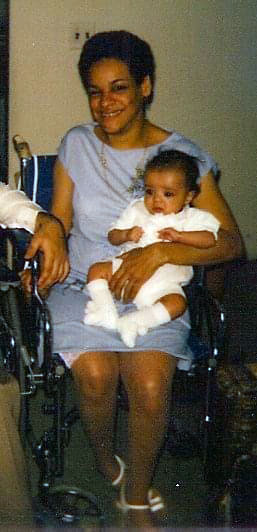
Why did the courts decide to take my brother away?
Ma: When I had your brother, I did not have the same support. They saw my disability as a disadvantage and felt I was not capable of providing care for a disabled child. So, the courts decided that I could not have parental rights. That is why I had you, because I was not going to allow the same thing to happen to me twice. (Jessica's note: our grandma was given guardianship over my brother, so he was never in the 'system.')
What was the most challenging part about raising me?
Ma: Getting people to take me seriously as your mom. Because of my imprecise articulation (dysarthria), I was constantly fighting with doctors to talk to me about your care and to listen to me about my concerns. They would always talk to the home attendant instead of me, and it made me feel very insignificant. I would yell at them and tell them, "I'm her mother! Talk to me and listen to me!" I had to fight hard to get the respect and recognition that I was a parent like everyone else.
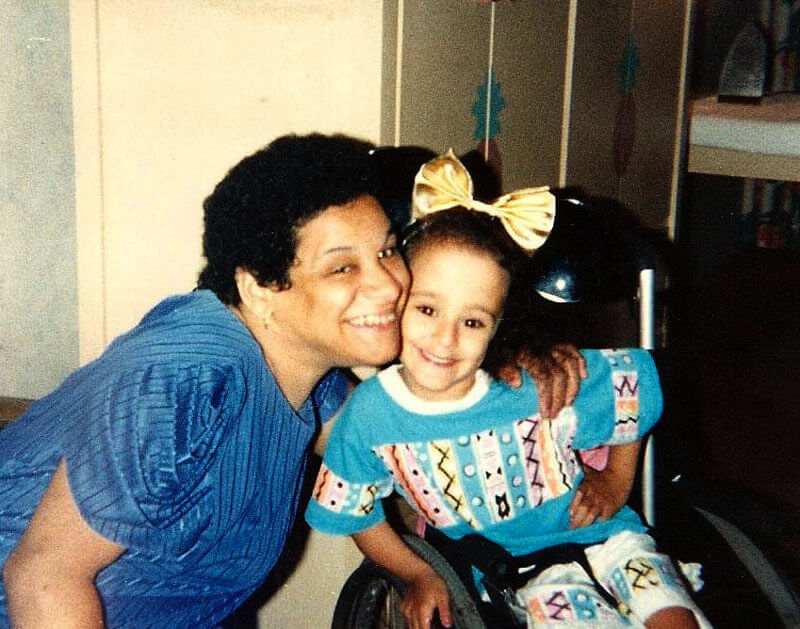
Ma, I am always telling people about that one time you hoisted me into the air with your one good arm to reach something at the top of the closet. What made you think to do that?
Ma: I do not remember what I wanted you to reach for me, but I know I really needed it. And if I wanted to get it, I had to figure out how. You were so tiny and light I knew I could hold you up and you could grab it for me.
I remember we always changed the furniture around in the apartment because you would get bored with how it looked. What made you realize you could do that?
Ma: I stayed home a lot when I was a kid, and my brothers and sisters went out. I realized when I was alone, I could use my chair to push big furniture to change my room around whenever I wanted without people complaining. Of course, make sure you don't ruin your furniture or your wheelchair, or risk having something topple over on you.
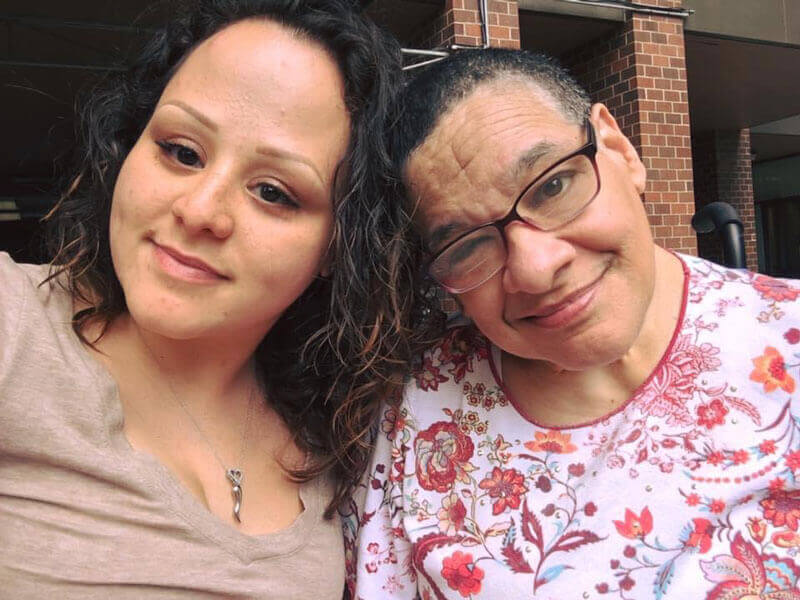
Were you scared to be a first-time mom?
Ma: No, I was very happy when I found out I was pregnant with your brother. Even though you both made me very fat. [laughs]
What did you feel when you learned that my brother and I would be disabled, too?
Ma: I didn't understand that your father's disability was genetic until it was explained to me your brother was broken in utero (Jessica's note: my brother and I both have osteogenesis imperfecta). Once I learned that - I was okay with it. Once your brother was born and he was no different from other babies in our family and the family did not treat him any differently, I knew that it would all be okay. It was hard when you guys broke a bone but once you were treated and had a cast, it was like nothing ever happened. You would still crawl around and get into everything, including trouble! [laughs]
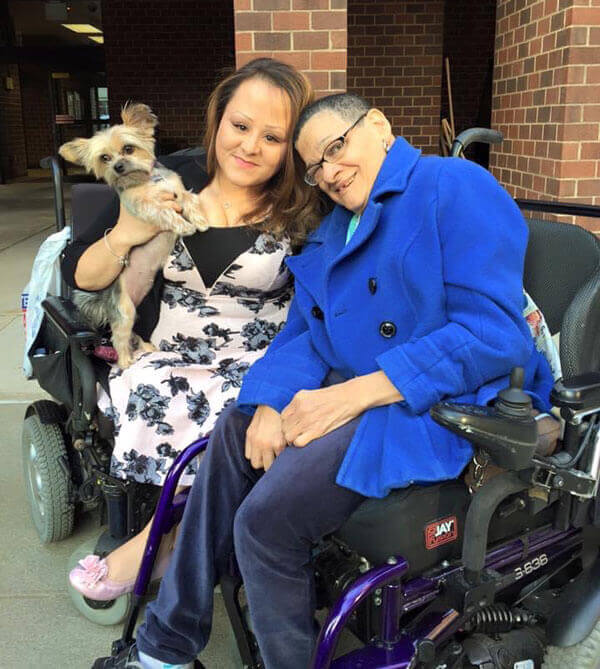
Would you have changed anything?
Ma: Of course I would have liked to have your brother and raised you together. Maybe that would be better for the two of you as siblings. But when I see the two of you both successful and happy, I feel fulfilled as a mom.
Thank you, Ma, for helping me to put this interview together.
Ma: Anything to get you to come upstairs and sit with me! [laughs]
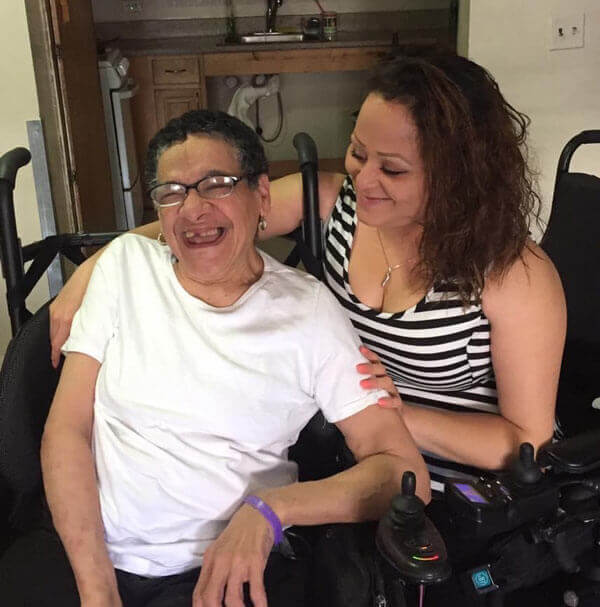
My mom overcame so many obstacles growing up during a very different time for people with disabilities. Having children was one of them. I am always thankful for her strength, courage, bravery, and determination. I love you, Mommy Tata.
About the Author
Jessica De La Rosa is a 36 year old college graduate, artist, dancer, former competitive rower, and Ms. Wheelchair New York 2016 title holder.
Her disability is called Osteogenesis Imperfecta, which means her bones can break with little or no cause. She was raised by her mother who also has an disability called Cerebral Palsy. Jessica was made very aware early in her childhood that their is no such thing as 'can't' and was always motivated and determined to get things done.
Today Jessica remains active in advocacy and has her own mentoring program which she started as MWNY. She wants everyone with disabilities to be advocates, learn their rights and live their lives as full as possible. They meet twice a month and have focused discussions, guest speakers, gives workshops to parents and go on trips among other things. She currently works for the Brooklyn Center for the Independence of the Disabled as their Systems Advocate.
Most of the stories here on LiveQuickie.com were submitted by readers. Do you have a story to tell? We'd love to hear it. Submit your story here.